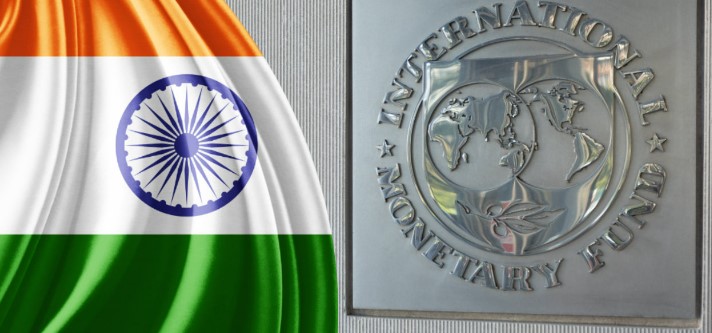Virendra Pandit
New Delhi: Although India has not remained unimpacted because of global economic woes, it is doing better and is in a relatively brighter spot compared to other countries whose economies have slowed down in terms of economic growth, a top International Monetary Fund (IMF) official said on Tuesday.
Look at the global conjuncture right now, which is the overarching problem, IMF Director of Asia and Pacific Department, Krishna Srinivasan, said, adding that the growth was slowing across many parts of the world even as inflation is rising.
“We expect countries accounting for one-third of the global economy to go into a recession this year or the next. And inflation is rampant. So that is the overarching story,” Srinivasan said, according to the media reports on Wednesday.
He said inflation has a bearing on domestic demand. When India tried to address inflation, by tightening its monetary policy, it will bear upon investment. “And so, you see some slowing in India’s growth, and that’s why we revised it to 6.8 percent this year and to 6.1 percent the next year,” Srinivasan added.
About India’s ambitious plan for capital expenditure, he said it would boost domestic demand.
Citing New Delhi’s efforts to tame the impact of inflation on the poor and the vulnerable, he said: “They have cut excise taxes, which is across the board. That is good and bad. It is good in the sense that it provides relief on the price side, but it’s not well-targeted. In limited fiscal space, you want these measures that ease inflation impact to be more targeted. We would want more targeted support for the poor and vulnerable. The free rations are one,” he said.
About the return of equity capital to India, he said FDI would boost prospects.
Applauding India’s digitalization, Srinivasan said, “If you look at the digital public infrastructure in India, it’s quite amazing. You can leverage digitalization to address many things, to boost growth, both in the near term and over the longer term,” he said.
The zero Covid policy dragged down the Chinese economy. For India, however, the pandemic had less of a headwind because New Delhi successfully addressed it through the full vaccination of over 70 percent of the population.
This, he said, will generate a multiplier effect on the private sector, which can boost employment.
Meanwhile, the IMF also praised the Reserve Bank of India (RBI) for tightening the monetary policy to curb inflation.
“The RBI has appropriately been tightening to fight inflation as the inflation is above target, and since May, if my memory serves me well, it sort of delivers 190 basis points rate hikes and we think further tightening is needed to bring inflation to its target,” Garcia Pascual, Deputy Division Chief of the Monetary and Capital Markets Department of the IMF, told reporters at a news conference.
Tobias Adrian, Financial Counsellor and Director of the Monetary and Capital Markets Department of the IMF, said that monetary policy has tightened in India, similar to other emerging markets, where inflation has been above target.
In its World Economic Outlook, the IMF on Tuesday projected India’s growth rate as 8.7 percent in 2021, 6.8 percent in 2022, and 6.1 percent in 2023.
More than a third of the global economy will contract in 2023, while the three largest economies—the United States, the European Union, and China—will continue to stagnate, the report said.
“In short, the worst is yet to come, and for many people, 2023 will feel like a recession,” said Pierre-Olivier Gourinchas, the Economic Counsellor and the Director of Research of the IMF, in his forward to the WEO report released during the annual meeting of the IMF and the World Bank.
Besides, there are three underlying headwinds. One is financial conditions tightening because central banks and Asian economies are tightening to address inflation.
The second is the Ukraine war which triggered an increase in food and commodity prices, widening current account deficits. And the third is the slowdown in the Chinese economy, he observed.
A combination of these factors is driving prospects down across many parts of Asia, including India, where external demand is coming down and inflation rising.

